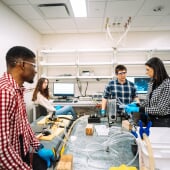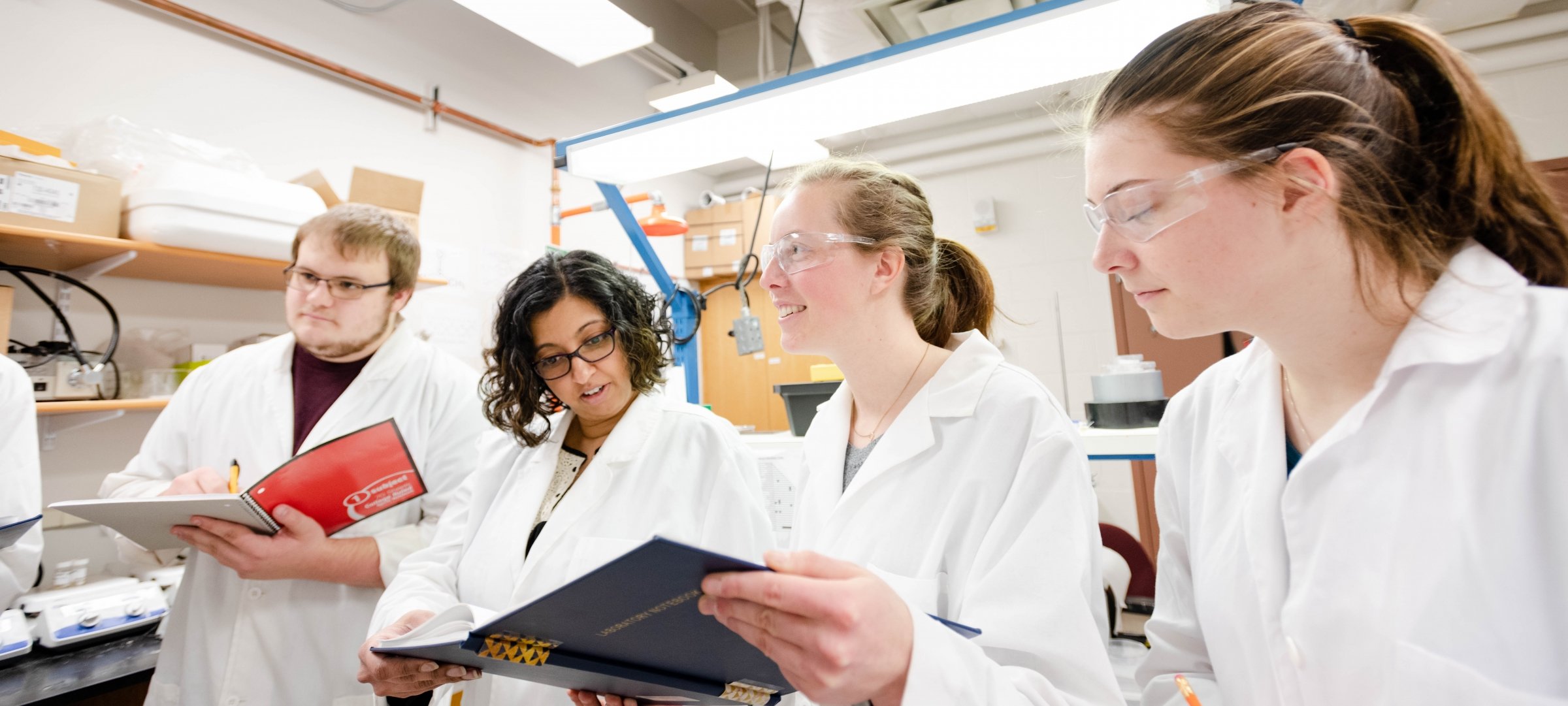Biomedical engineering focuses on the advances that improve human health and health care.
Apply techniques of engineering to biology and medicine. Learn diagnosis, analysis, treatment, and recovery. Combine electrical engineering, computer science, and data acquisition in developing biosensors. At Michigan Tech, you will learn biomaterials and biomechanics. You can find out the relationship between smart polymers and stimuli.
Medical imaging covers the physical nature of the interactions between the waves and matter. Learn techniques to process imaging of biological tissues. Design and construct a bioreactor. Help a whale through safer tagging. Study biomimicry to incorporate biological designs into biomedicine.
Request Information
Form loading . . .
Bachelor's Degree

Biomedical Engineering, BS
With a bachelor's degree in biomedical engineering, you can focus on living systems. Build cyber physical systems for health care needs in a medical device industry. Gain skill sets to characterize medical lithium-ion secondary batteries. Design a fatigue and stress test. Select sensors to measure core temperature, blood pressure, blood oxygenation, arrhythmia, and dehydration. Measure the mechanical properties of a cell monolayer. Your training is wide-ranging and diverse.
Minors
Add to your degree at a flagship technological university with a biomedical engineering minor. A minor allows you to specialize in a discipline outside of or complementary to your major. We recommend that you begin your minor studies as early as possible in your academic career.
- Biomaterials Engineering
- Biomedical Engineering
- Medical Devices and Instrumentation
- Tissue and Stem Cell Engineering


